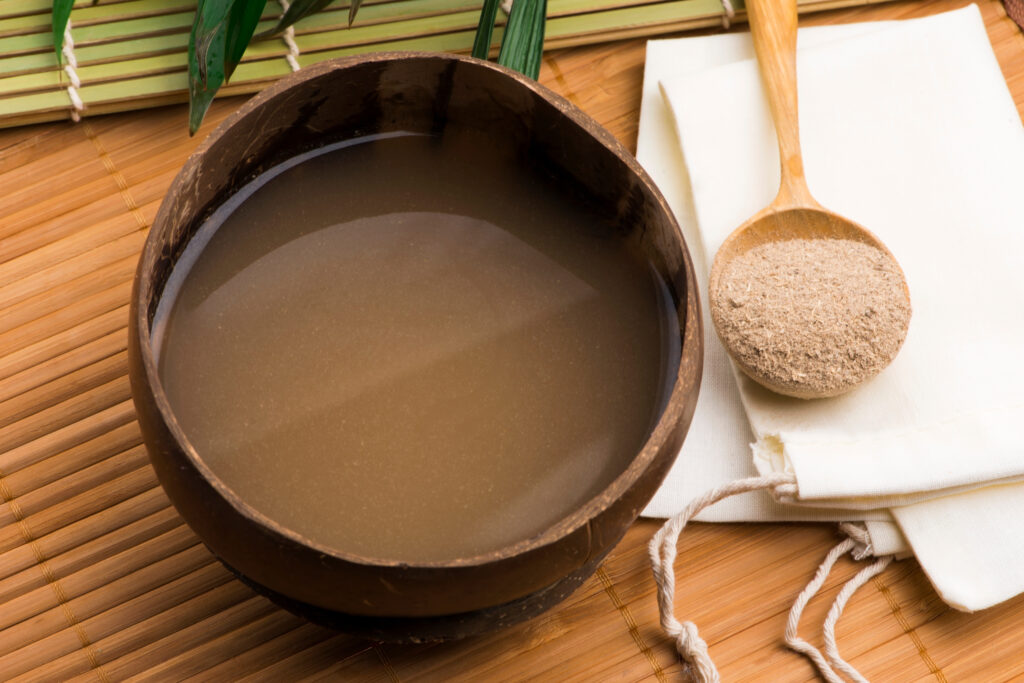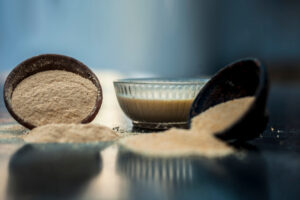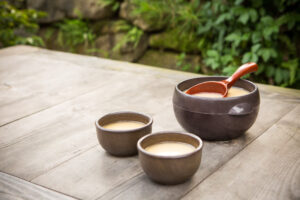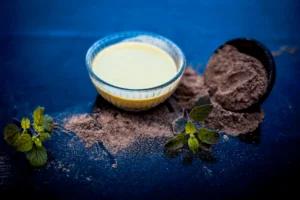I still remember my first kava experience in Colorado.
After relocating from Florida to Boulder, I found myself in a small lounge just off Pearl Street, hands wrapped around a coconut shell filled with the earthy, root-derived beverage.
What struck me wasn’t just the taste – I’d had kava before – but how differently it seemed to affect me here, a mile above sea level.
That evening began my fascination with what many local enthusiasts call “Mountain Zen” – the unique interplay between Colorado’s elevation and this ancient Pacific drink.
The Altitude Difference You Can Feel

Experience Kava With Us
Anyone who’s visited Colorado knows the subtle bodily changes that happen when you ascend to our elevations. The slightly quickened breath. The deeper water consumption. The way two beers can feel like four. These same physiological shifts create a fascinating backdrop for kava consumption that seasoned drinkers insist creates an experience that’s distinctly different from enjoying the same beverage at sea level.
The Thin Air Connection
At 5,280 feet and above, your body compensates for decreased oxygen availability in ways that appear to complement kava’s journey through your system. Denver kava bar owner Elaine Tagama, whose family has Tongan roots, explained it to me this way: “The kavalactones – the active compounds in kava – seem to work more efficiently in the bloodstream at altitude. Your body is already increasing blood flow to compensate for lower oxygen. This same mechanism seems to distribute kava’s compounds more effectively.”
The result isn’t necessarily a stronger effect, but rather a more rapid onset and what many describe as a “cleaner” experience. The traditional heavy sensation in the limbs that kava is known for arrives more quickly, yet the mental clarity seems enhanced rather than diminished – a contradiction that makes more sense when you understand how our bodies adapt to elevation.
The Hydration Synergy
Colorado’s notorious dryness creates another interesting dimension. “We’re constantly reminding visitors to hydrate here,” says Marcus, who runs kava workshops in Colorado Springs. “What we’ve observed is that the discipline of good hydration – essential at our elevation – actually enhances kava’s effects while minimizing any potential downsides.”
This synergy isn’t coincidental. Traditional kava ceremonies in the Pacific Islands emphasize proper preparation and consumption practices to maximize benefits while minimizing adverse effects. Colorado’s natural demands for increased hydration inadvertently enforce one of these traditional best practices.
A Different Kind of Rocky Mountain High
Colorado’s relationship with mind-altering substances has always been progressive, from being among the first states to legalize cannabis to its rich craft brewing culture. Yet kava offers something distinct in this landscape – a non-alcoholic, non-cannabis option that resonates with the state’s wellness-focused ethos.
The Post-Adventure Unwind
What makes Colorado’s kava culture unique is how it’s being integrated into the state’s outdoor lifestyle. After a day on the slopes or trails, many are discovering kava as an alternative way to decompress.
“I used to have a couple beers after skiing,” shares Trevor, a summit county resident I met at a Breckenridge kava bar. “But at altitude, alcohol hit me harder than I wanted and affected my performance the next day. Kava gives me that unwinding feeling without the dehydration or next-day effects.”
This post-adventure application represents a fascinating cultural adaptation of kava’s traditional use. In Pacific ceremonies, kava often facilitates social connection and conversation. Here in Colorado, it’s finding a new purpose – helping outdoor enthusiasts process the natural high of mountain adventures while preparing their bodies for the next day’s activities.
The Mindfulness Amplifier
Colorado’s robust meditation and yoga communities have embraced kava for its ability to create a unique mental state – relaxed yet clear – that complements contemplative practices especially well at elevation.
“There’s already something about the mountains that makes meditation different,” explains Sunita, who leads combined kava and meditation sessions in Boulder. “The reduced oxygen creates a natural shift in awareness. When paired with kava’s effects, many people report reaching meditative states more quickly and with greater depth.”
Finding Your Own Mountain Zen
If you’re curious about this distinctive Colorado experience, the good news is that the state’s kava scene continues to grow. From Denver’s RiNo district to mountain towns like Nederland and Frisco, dedicated kava lounges offer traditionally prepared beverages in settings that range from Pacific-inspired to distinctly Colorado rustic.
The most authentic experience combines three elements: properly prepared traditional kava, adequate hydration before and during, and mindful appreciation of how your body feels different at elevation. Whether you’re a local or visitor, taking time to notice these subtle interactions creates an experience that’s uniquely Colorado – a blend of ancient tradition and mountain living that produces a form of relaxation you won’t find at sea level.
This evolving relationship between elevation and kava represents something I’ve come to appreciate about Colorado culture – the respectful adaptation of traditional practices to our unique environment, creating experiences that honor their origins while finding new expressions in our mountain home.




